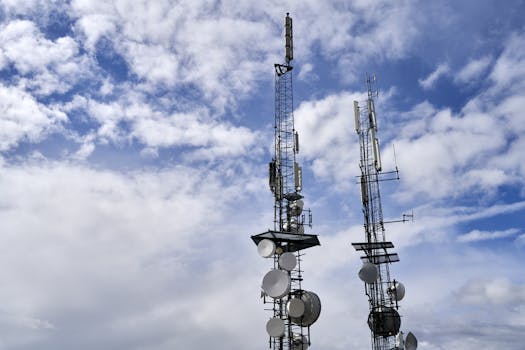The Future of Satellites: Revolutionizing Global Connectivity
The future of satellites holds immense promise for revolutionizing global connectivity, enabling rapid data transfer, and transforming various industries. With advancements in technology, satellites are becoming increasingly crucial for bridging the digital divide and facilitating communication worldwide.

The Future of Satellites: Revolutionizing Global Connectivity
The future of satellites holds immense promise for revolutionizing global connectivity, enabling rapid data transfer, and transforming various industries. With advancements in technology, satellites are becoming increasingly crucial for bridging the digital divide and facilitating communication worldwide. Satellite technology has been evolving rapidly over the years, and its applications are expanding beyond traditional uses such as navigation, weather forecasting, and television broadcasting.
Advancements in Satellite Technology
Recent advancements in satellite technology have led to the development of smaller, more efficient, and cost-effective satellites. The use of miniaturized satellites, such as CubeSats, has made it possible to launch multiple satellites at once, increasing the overall capacity and reducing the cost of access to space. Additionally, the integration of advanced materials and propulsion systems has improved the performance and lifespan of satellites.
The introduction of reusable launch vehicles, such as those developed by SpaceX and Blue Origin, has significantly reduced the cost of launching satellites into orbit. This has opened up new opportunities for satellite-based services, including satellite internet, Earth observation, and satellite-based navigation. The increased availability of launch opportunities has also enabled the deployment of satellite constellations, which are networks of satellites working together to provide global coverage and continuous connectivity.
Applications of Satellite Technology
Satellite technology has a wide range of applications across various industries, including telecommunications, navigation, Earth observation, and weather forecasting. Satellite-based telecommunications enable global connectivity, providing internet access to remote and underserved communities. Satellite navigation systems, such as GPS, have become essential for transportation, logistics, and precision agriculture.
Satellite Earth observation enables the monitoring of environmental changes, tracking of natural disasters, and management of natural resources. Satellite-based weather forecasting provides critical data for predicting weather patterns, enabling early warnings for severe weather events, and supporting climate modeling. The use of satellites for remote sensing and Earth observation has also become increasingly important for applications such as crop monitoring, land use mapping, and disaster response.
Challenges and Opportunities
Despite the many advancements and applications of satellite technology, there are still several challenges that need to be addressed. The increasing number of satellites in orbit has raised concerns about space debris, congestion, and the potential for collisions. The need for sustainable and responsible management of space resources has become a pressing issue, requiring international cooperation and regulation.
The future of satellites also holds many opportunities for innovation and growth. The development of new satellite-based services, such as satellite-based internet of things (IoT) and satellite-based 5G networks, is expected to drive further growth and investment in the satellite industry. The use of satellites for deep space exploration and the search for extraterrestrial life is also becoming increasingly important, with many governments and private companies investing in satellite-based missions to the Moon, Mars, and beyond.
Conclusion
In conclusion, the future of satellites is exciting and full of promise. With advancements in technology, satellites are becoming increasingly crucial for bridging the digital divide, facilitating communication, and transforming various industries. As the satellite industry continues to evolve, it is essential to address the challenges and opportunities that arise, ensuring sustainable and responsible management of space resources and promoting international cooperation and regulation.




